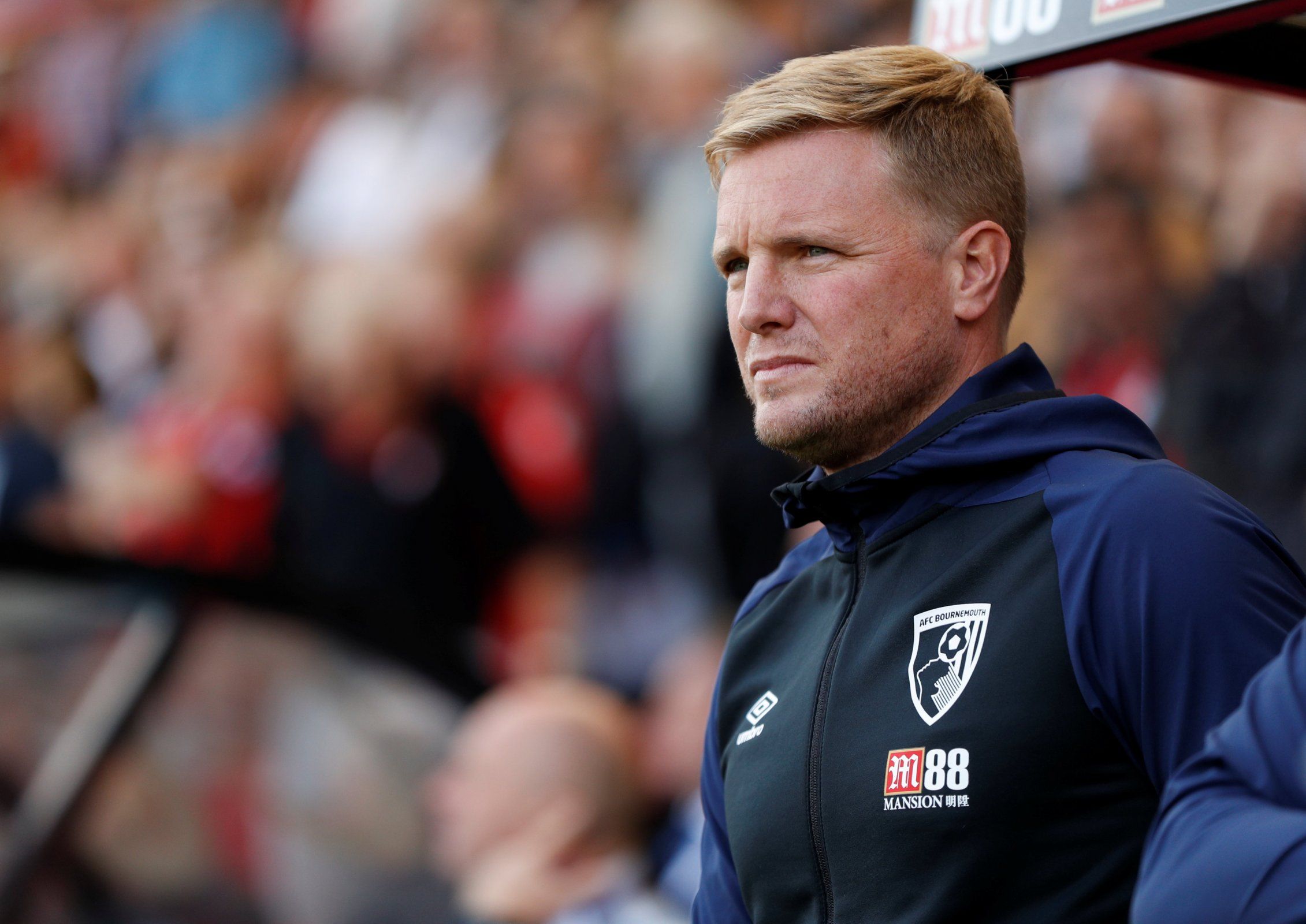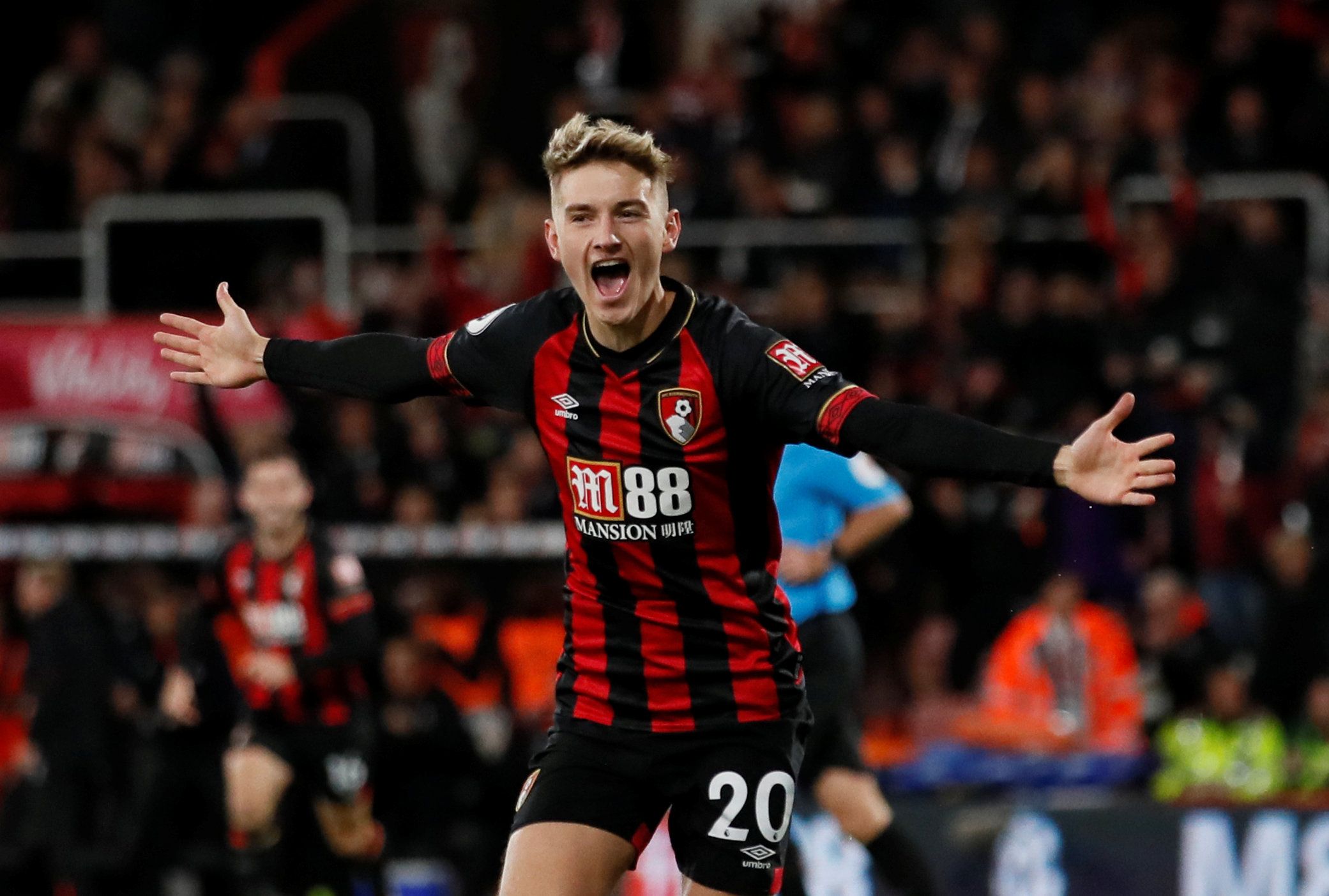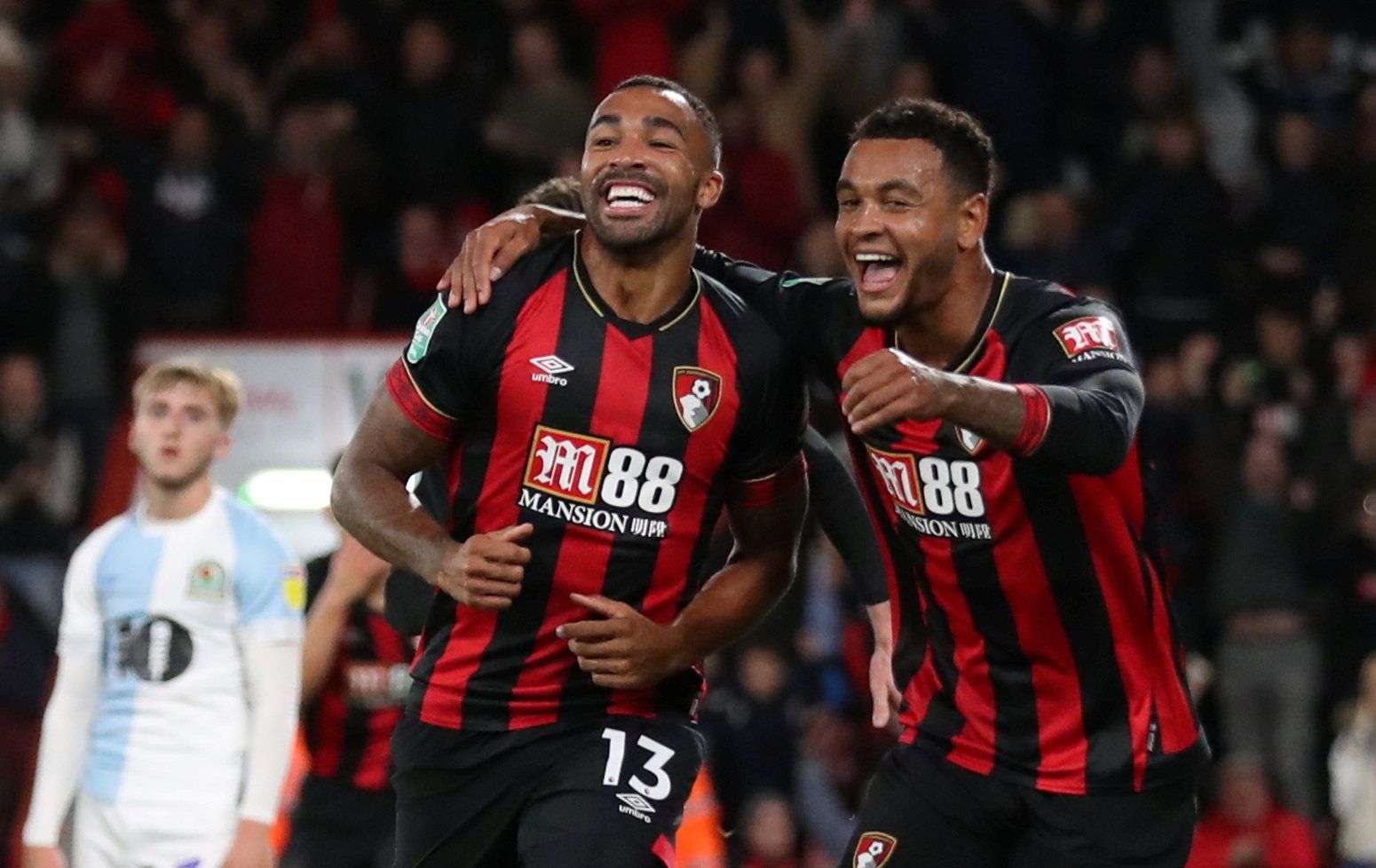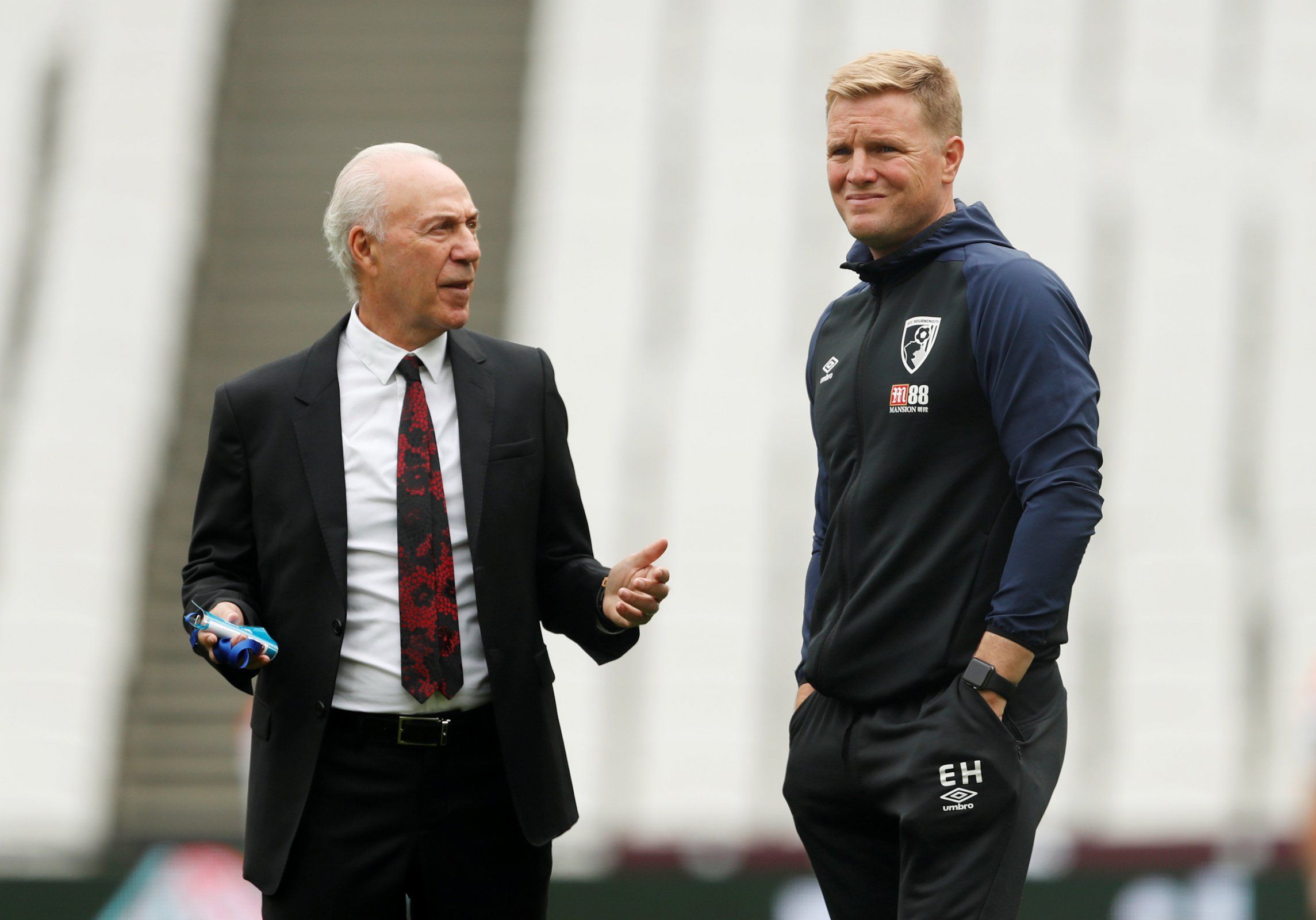[ad_pod ]
Eddie Howe’s Bournemouth currently find themselves in sixth place in the Premier League table with five wins and 17 points already on the board. With nine games played, the Cherries are just six points off of the top spot.
None of that is to suggest that the south coast club ought to be tipped for a Leicester City-like charge for the title, but rather to illustrate what an impressive job Howe is doing at the Vitality Stadium.
The 2018/19 campaign marks the club’s fourth season in the top flight, following their ascension as Championship title-winners in 2015. It is rather remarkable that such a small club have been able to establish themselves in the Premier League, and not only settle for survival from thereon, but rather, strive for improvement and to continue climbing the table.
However, looking back at the Bournemouth story, and how it has unfolded over the course of the past ten years, it should perhaps not be so surprising to see them perched at such lofty heights as they are now. Beyond that, in an era of super-clubs, the ‘big six’, and £100+ million transfer fees, the Bournemouth story can act as a guide for clubs who don’t wish to let small stadiums, a dearth of funds and the lack of an internationally recognised brand detract from their dreams of making it to the top.
[brid autoplay="true" video="310054" player="12034" title="Rafa's Pub Facts Fake Madrid & Ross Barkley Emulates... David Ngog"]
Bournemouth’s journey over the past decade has, in fact, really been the Eddie Howe show. The former defender became the youngest manager in the Football League when he took over his beloved Cherries in January 2009.
Having made over 300 appearances for the club as a player, Howe took up his position in the dugout with the then-League Two outfit in dire straits. That season, Bournemouth had kicked off the campaign with a 17 point deficit due to failing to comply with insolvency rules. Despite this, Howe was able to guide the side to a great escape and save their league status. The following campaign, Bournemouth secured promotion to League One.
After a brief, unsuccessful spell as Burnley boss in 2011, Howe returned to his previous position with Bournemouth and led them to promotion once again, this time to Championship, in 2013. Bournemouth became champions of the second tier at the end of their second season in the division. The club entered the top flight of English football for the first time in their history ahead of the 2015/16 season.
In April 2015, Howe was awarded the inaugural Manager of the Decade award by the EFL.
[ad_pod ]
Returning to the present, Howe’s current successes are founded upon the same principles that saved his club from falling out of the Football League altogether all those years ago. The 40-year-old does not rely upon being able to buy in top level players in order to guarantee success. Rather, he gradually improves and maximises the potential of those he already has at his disposal.
Whilst this approach is partially enforced by Bournemouth’s relative inability to compete at the top end of the market, it is also largely due to the fact that expensive transfer mistakes have almost cost Howe’s mission in the past.
The signing of Max Gradel from Saint-Etienne for a fee of around £9 million in the summer of 2015 was a mistake made early in the club’s Premier League life. One year later, the Cherries splashed out a then-club record fee of £15 million to secure the services of Jordon Ibe from Liverpool. Whilst he has proved to be a useful squad player, the former Red has so far failed to live up to his price tag on the south coast.
Those are the kind of market missteps that bigger clubs can brush off. Bournemouth cannot afford them.
It is telling, that whilst the club have continued to break their record fee summer on summer since coming into the Premier League (due to rapid inflation as much as anything), they avoid great influxes of players joining the squad in any one window.
Their approach to the market is cautious and considered, the transfer window being viewed, it would seem, as simply an opportunity to appropriately adorn the current structure of the squad, rather than lay whole new foundations and embark upon an overhaul.
This summer, for instance, Bournemouth brought in just three new players - Diego Rico, Jefferson Lerma, David Brooks - for a total spend of around £45 million. Newly promoted Fulham, on the other hand, spent over £100 million and introduced 12 new faces to the first team squad.
Bournemouth are flying high, meanwhile, Fulham already find themselves near the bottom and have conceded more goals than any other team in the league.
Whilst it can be argued that four summers after their promotion to the top flight Bournemouth no longer need to bring in such vast quantities of players, it must also be remembered that five members of their most recent starting XI played for the club at Championship level or lower (as did four of their substitutes).
What’s more, Bournemouth’s three stand out players this season have all been at the club for a number of years. So impressive have Josh King, Callum Wilson and Ryan Fraser been so far this season, the Cherries’ goalkeeper, Asmir Begovic, described them as a strike force “up there with Liverpool’s”, as reported by the Daily Mail.
So far this season, the aforementioned triumvirate have produced 12 goals and 9 assists between them - a contribution of 21 goals in total in just eight league matches. Across the entire previous Premier League campaign, the trio registered 19 goals and 8 assists. King, Wilson and Fraser are just six goal contributions short of their entire total for last season with less than a quarter of the new term gone.
There can be no greater evidence of Howe’s ability to improve the players in his squad than the output that his front three are currently producing. This has been a slow process, but one that is now paying dividends. Fraser joined the club for £400,000 in 2013; Wilson cost around £3 million to sign in 2014; in 2015, King arrived as a free agent.
A grand total of less that £3.5 million. The prolific final package now being witnessed in the Premier League is the product not of big spending, but hard work and dedication on the training pitch.
Howe’s achievements have set a new benchmark for clubs looking to climb the pyramid of English football, without the aid of Wolves-style investment.
Of course, just saying ‘do what Bournemouth did’ is pointless and reductive. Bournemouth’s feat is remarkable and has been extraordinarily difficult to see through (here, credit must also be given to the club’s owner, Maxim Demin, and chairman, Jeff Mostyn, for their vision and faith).
Yet, the manner of the club’s conduct and their approach to growth - albeit something that has come about about organically, as they have learned from their few mistakes - is replicable and something to aspire towards. The objective of buying affordable, raw talents and patiently, painstakingly nurturing and training them up is laudable and, as the Cherries have proved, potentially very effective.
Not only is this a romantic ideal, but it could soon become the only viable (though, not at all easy) route to the top for ambitious Football League sides. As the gulf between the big six and the rest of English football widens and the financial might of top flight clubs continues to escalate, the Eddie Howe approach to management could soon become the only method for EFL clubs trying to claw their way up the ladder (without limitless funds) to achieve that ultimate dream.
In short, the Bournemouth way may be about to become the only way.




